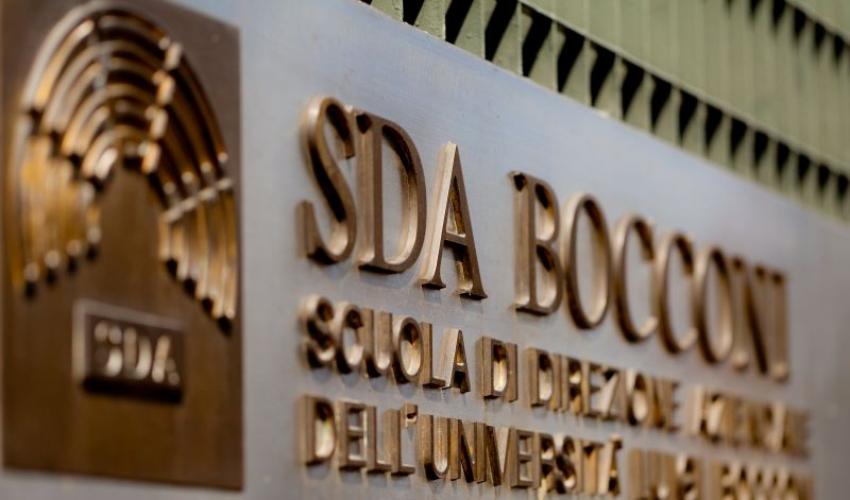
Finance? A Starting Point, Not an End Point
SO SAID ROBERTO COLANINNO, AS MAURIZIO DALLOCCHIO REMEMBERS FONDLY. DALLOCCHIO LED SDA FROM 2003 TO 2005, ALONG WITH SEVERINO SALVEMINI"Innovate, innovate, innovate while maintaining tradition." This is how Mario Monti described the objective of Maurizio Dallocchio’s term as Dean, following the years when the School had begun to take on an international dimension with Elio Borgonovi at the helm. "Innovating while maintaining tradition meant bringing Bocconi culture into an emerging framework, but at the same time not forgetting Claudio Dematté’s domestic focus when founding SDA. Namely, to serve the community and also train leaders in public administration and healthcare, who were often considered second-class but were actually very important. Just as we could not forget SMEs, which in Italy represent an essential foundation of the economy.”
That period was influenced by a traumatic event, the death of Claudio Dematté who had always been the leader of SDA. Severino Salvemini, President of the School from 2003 to 2005, remembers it this way: "At that time, there was a continuity with those who came before us, in part because internationalization had already begun and we continued down that path. They were also years during which the SDA educational offer was rationalized, an entrepreneurial choice that led us to scale down the course catalogue, while increasing the number of students enrolled in each program."
Among his many memories of that period linked to the well-known and lesser-known personalities who attended SDA classrooms, Dallocchio remembers one particularly fondly: "Roberto Colaninno said something that made a big impression on me, that 'finance must be the servant of industrial activity and cannot be the end point.' And it should be remembered that it was an important time for market finance, because a lot of money could be made. But for him it was only a short-term phenomenon.”
As for the future, Dallocchio says that “teaching methods will have to be blended, but direct contact will remain fundamental, it cannot be replaced by distance learning. This will be true for the short-term. In the medium- and long-term, on the other hand, the people in charge with leadership roles – and not just their deputies – must be brought back to the classroom. One last aspect is to have a strong international identity, which means having completely international experience, exposure and perceptions.”
Regarding the value of creativity as a strength, Severino Salvemini insists: “This aspect is highly valued abroad and it must be emphasized, because we may be lacking in other aspects such as rigor and method. Teaching students to be creative isn't easy, but it can be done. Indeed, it must be done: thinking outside the box is fundamental and we have a large number of entrepreneurs, more so than executives, who make creativity their strength."
Since Salvemini was president, the world has changed a lot and continues to do so at an incredible speed. What does executive education need to do to keep up? “Basic skills are now acquired during university studies, and the future of post-graduate training will be closely tied to current events. An important issue will be that of uncertainty, as we are seeing in this phase dominated by the pandemic,” continues Salvemini. "We will have to be very openminded, focus on multidisciplinary training and understand in real time what is happening in the world, because large companies are increasingly global."
by Davide Ripamonti
Translated by Jenna Walker
